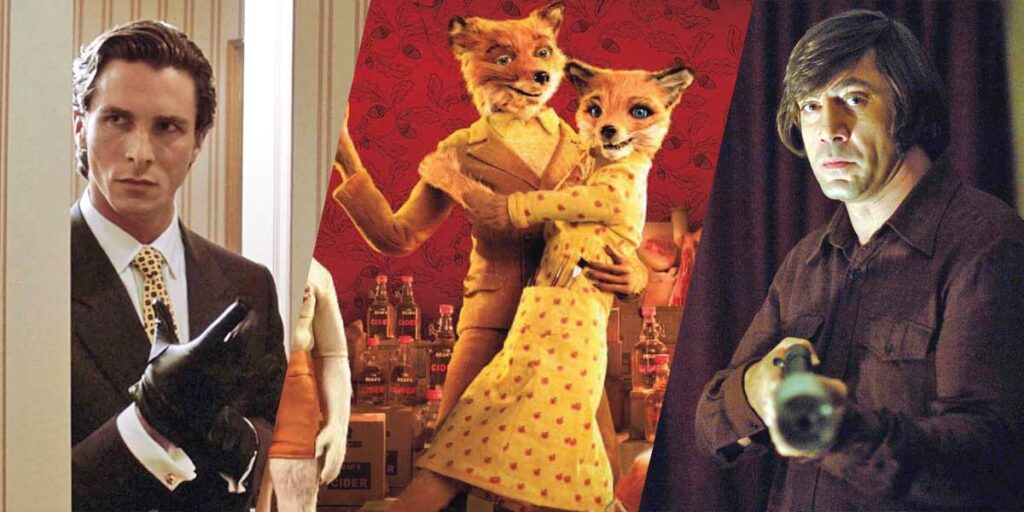5 of the rare adaptations that not only lived up to expectations, but managed to be even better than the book.
Adapting a book is often one of the safest investments a production company can make – a book that sold well will likely more than recoup its budget at the box office, even if the movie adaptation falls well short of the mark. When it comes to quality, these adaptations are far more hit-and-miss; for every Jurassic Park, there’s a Book Thief, and for every Gone Girl there’s a Time Traveller’s Wife. Adapting an excellent book throws up even more risk – if it’s bad, it’s immediately and incredibly obvious. If it’s good, however, you have everything you need for a truly remarkable film.
These 5 examples show the best-case scenario for these adaptations: not only do they live up to their source material, but by embracing the inherent differences between page and screen they transform excellent writing into works of art that can truly be considered better than the book.
AMERICAN PSYCHO
Director: Mary Harron
Writers: Bret Easton Ellis (novel), Mary Harron & Guinevere Turner
Year: 2000
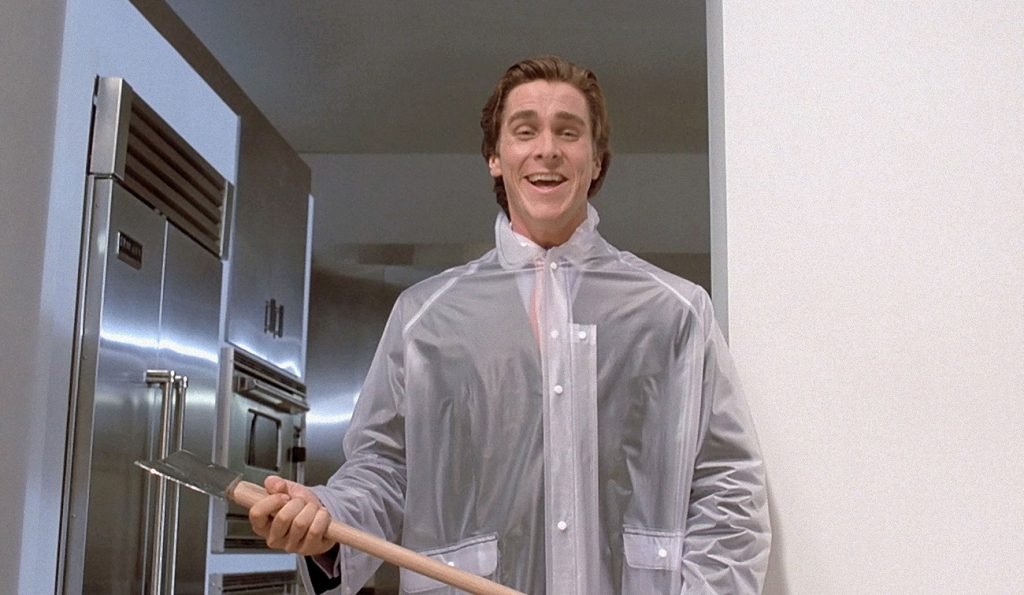
Bret Easton Ellis’ American Psycho is a difficult book to read. It’s brutal, graphic, deeply disturbing, and truly uncomfortable throughout. Combined with its meandering plot and deliberate ambiguity throughout (characters call each other by the wrong name, it switches at will between the first and third person, and there are entire chapters dedicated to reviews of Whitney Houston albums), it’s little wonder the movie received fairly widespread disdain upon release. It’s slow journey to reappraisal, as critics increasingly appreciated its themes of faceless materialism and capitalist schizophrenia, began in part with its controversial film adaptation. Ellis was one of many who initially opposed the creation of a film adaptation at all, decrying Hollywood’s desire for everything to have a solution, an easy answer.
The film absolutely doesn’t stick to this mantra. It revels in its own ambiguity, and twists Ellis’ script into the darkest of dark comedies, a film that enjoys the absurdity it creates at every turn. While it attracted the same criticism that Ellis’ novel received for its potential glorification of violence, director Mary Harron succeeded, in combination with a career-defining performance from Christian Bale, in distancing Patrick Bateman from any semblance of relatability or heroism. It’s a work that morphs Ellis’ often fuzzy and uncoordinated attacks on society into a firm, defiant strike at capitalist patriarchy and toxic masculinity.
THE GODFATHER
Director: Francis Ford Coppola
Writers: Mario Puzo (novel) & Francis Ford Coppola
Year: 1972
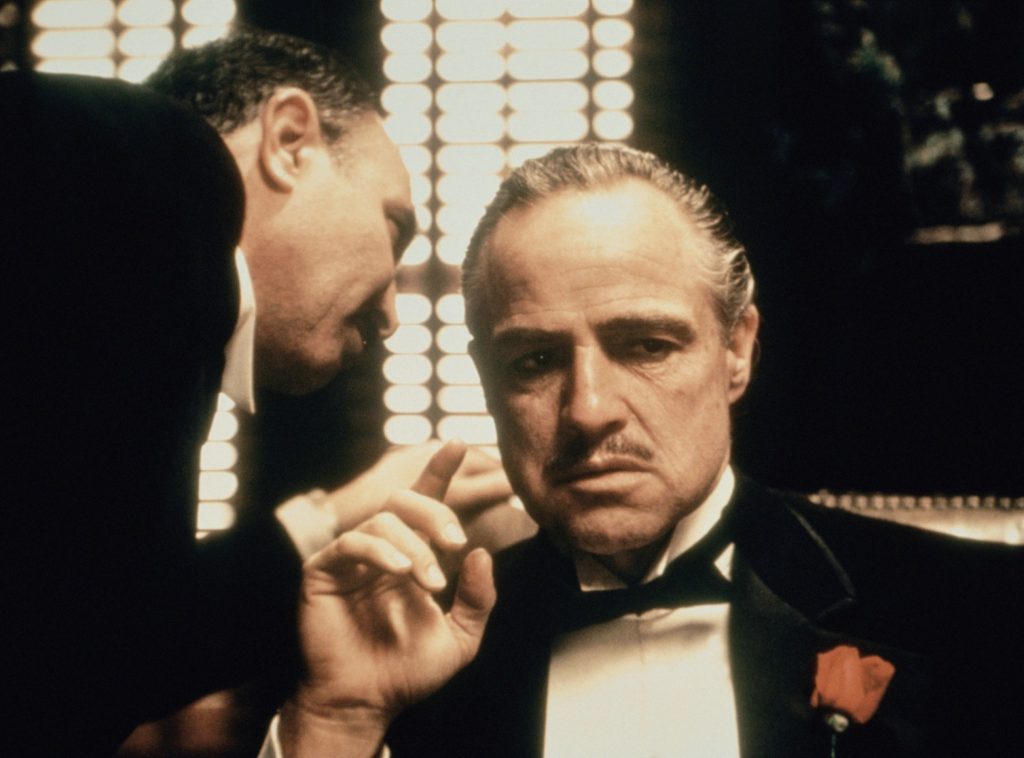
The Godfather is 608 pages long. To a Hollywood producer, that’s terrifying. When you think of film adaptations of exceptionally long books, they pretty universally fail to come close to living up to the novel (here’s hoping Denis Villeneuve breaks the Dune curse this year). Mario Puzo’s novelis nine books long, covers roughly a decade, and features a huge cast of characters across six families and the entirety of the United States organised crime world – how the hell did Francis Ford Coppola pare it back to under 3 hours?
With so much content to work with, Coppola’s challenge (along with Puzo himself, who served as co-writer) was never going to be about keeping the film interesting – it was about making sure it never wound itself into circles. It’s fair to say that this trap was avoided in pretty spectacular fashion, by stripping out side stories about Sinatra-substitute Johnny Fontaine and moving the story of Vito Corleone’s rise to power to the equally wonderful Part II. Of course, Coppola was helped by having some of the great acting performances of all time from Al Pacino, Marlon Brando, James Caan, Rovert Duvall…scores of essays have been written about why this is one of the great accomplishments of American cinema, but it all started with an enormous challenge of adaptation.
NO COUNTRY FOR OLD MEN
Director: Ethan & Joel Coen
Writers: Cormac McCarthy (novel), Ethan & Joel Coen
Year: 2007
It was difficult to predict quite how perfect a match Cormac McCarthy and the Coen Brothers would be. McCarthy’s novel was originally intended to be a screenplay, and it certainly reads like one, immediately evocative of place and time in a way so few novels even attempt to do. Combined with the camerawork of Roger Deakins, an unparalleled master of landscape cinematography, and the Coen Brothers’ penchant for sparse, desolate expanses, McCarthy’s images became translated into one of the most visually striking films in decades. Javier Bardem also breathed horrifying life into Anton Chigurh, one of the great film villains of recent memories, creating in him a cold, heartless agent of destiny that shadows over the rest of the film at every turn. It’s an incredibly memorable film, and one that used every facet at its disposal to elevate a wonderful text into a form truly better than the book.
FANTASTIC MR FOX
Director: Wes Anderson
Writers: Roald Dahl (novel), Wes Anderson & Noah Baumbach
Year: 2009
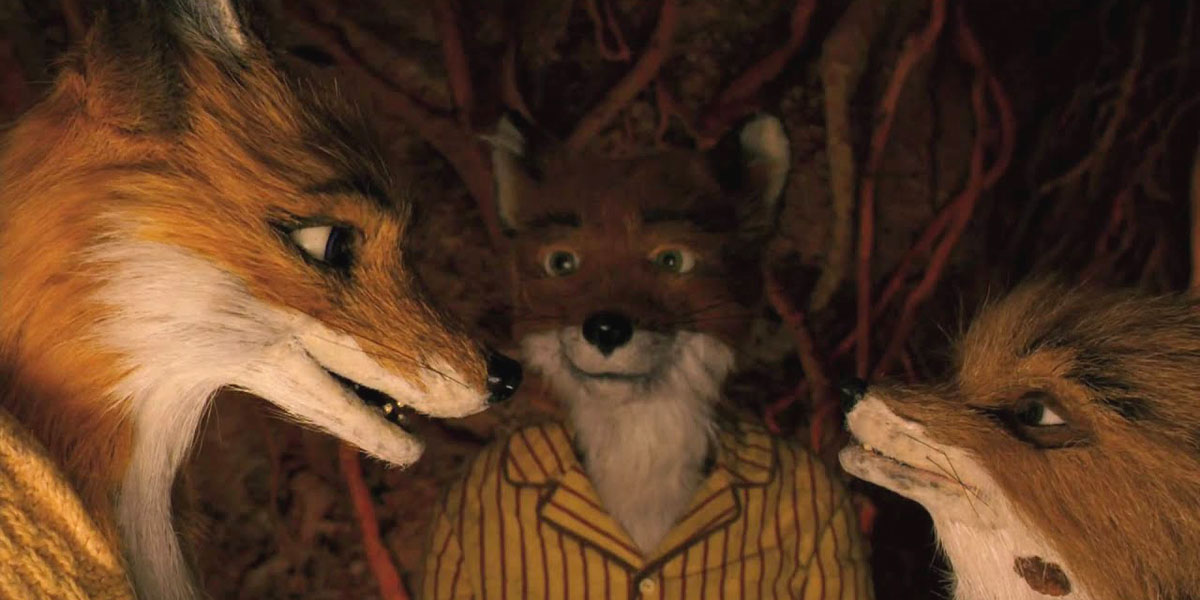
 loudandclearreviews.com
loudandclearreviews.comThis is a rather sentimental choice for me. I can still remember reading Fantastic Mr Fox as a child, and watching the film in the cinema, aged 11, sprinting out for a wee at the exact moment that (slight spoiler alert, but for the love of Christ, it’s Fantastic Mr Fox) Mr Fox has his tail shot off. I spent the rest of the movie completely bewildered. Roald Dahl’s novel is a staple in British households, but it’s too short to be converted into a film without some pretty radical alterations. Wes Anderson didn’t undertake this lightly.
The film follows a fairly similar story to the book but turns quite a simple plot into something much more fleshed out, akin to a woodland Ocean’s Eleven, yet adhered wonderfully to the tone infused into every Roald Dahl book, a feature that many adaptations of his work don’t quite get right. As we now know, following this and 2018’s Isle of Dogs, Wes Anderson’s pastel shades and obsessive symmetry translate perfectly to the medium of stop-motion animation, and the result here is a gorgeously composed work that represents one of the truest distillations of Anderson’s humour and aesthetics. This is, among stiff competition, possibly the finest of any Roald Dahl adaptation, and one of the great non-Pixar blockbuster animations of the 21st century.
THE SHINING
Director: Stanley Kubrick
Writers: Stephen King (novel), Stanley Kubrick & Diane Johnson
Year: 1980
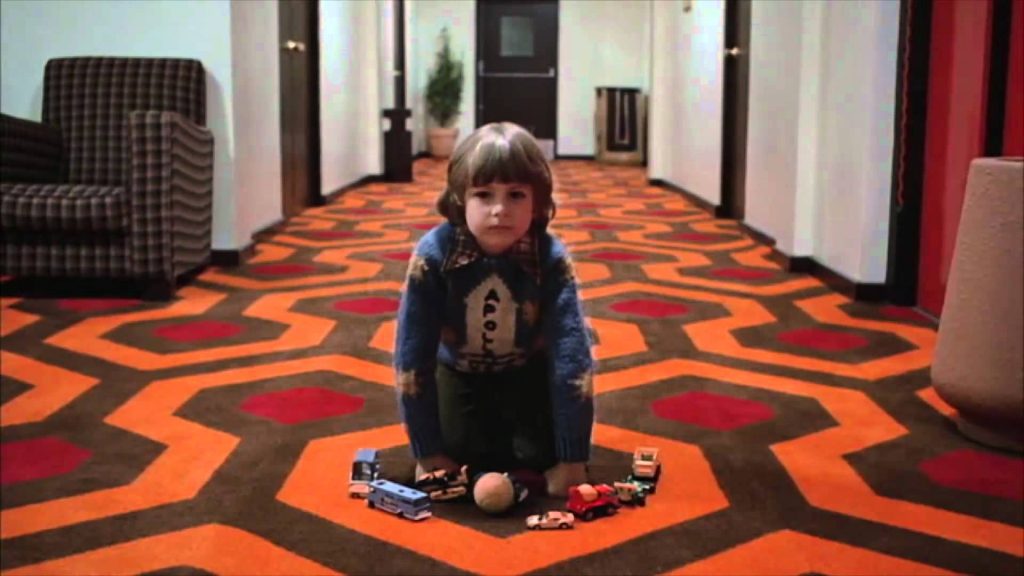
As someone who’d never seen The Shining until fairly recently, I feel like I could still essentially recite the entire film from memory simply through cultural osmosis – the hedge maze, the tricycle, the twins, the most terrifying carpet of all time, “Here’s Johnny”…few films have become as significant a cultural touchstone. It was incredibly bold of co-writer/director Stanley Kubrick and co-writer Diane Johnson to transform the original story so radically – there are no wasps’ nests or topiary lions in Kubrick’s version – leading to Stephen King brutalising the movie upon release and incredible division among critics. However, the film was able to accomplish so much that the book simply could not. Jack Nicholson and Shelley Duvall are both magnificent, and the soundtrack is unmatched among horror before or since. To take one of the all-time great horror novels from one of the all-time great horror writers, throw half of it away, and still produce a film better than the book is completely unheard of. It’s unlikely anybody but Kubrick could have done so.

